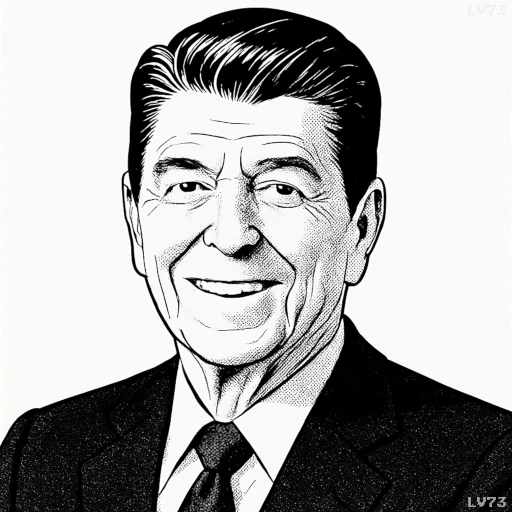“You know, if I listened to Michael Dukakis long enough, I would be convinced we’re in an economic downturn and people are homeless and going without food and medical attention and that we’ve got to do something about the unemployed.”

- February 6, 1911 – June 5, 2004
- American
- The 40th President of the United States, Actor, Politician, Governor of California
table of contents
Quote
“You know, if I listened to Michael Dukakis long enough, I would be convinced we’re in an economic downturn and people are homeless and going without food and medical attention and that we’ve got to do something about the unemployed.”
Explanation
In this quote, Ronald Reagan uses sarcasm and political wit to criticize his opponent Michael Dukakis, the Democratic presidential nominee in 1988. The humor lies in Reagan pretending to “discover” problems that Dukakis highlighted, despite Reagan’s belief that the economy was strong and improving under his administration’s policies. The underlying message is that Democrats paint an overly bleak picture of America to justify expanding government programs, while Reagan believed the nation was experiencing recovery and prosperity.
The historical context for this remark comes during the tail end of Reagan’s presidency, when economic indicators such as GDP growth and declining inflation were pointing to recovery after the stagflation of the 1970s. Reagan viewed critiques from Democrats like Dukakis as misleading or overly pessimistic, ignoring the gains made through tax cuts, deregulation, and military investment. His rhetorical jab reinforces the narrative that liberal critiques often exaggerate problems to justify government expansion, while conservatives emphasize individual success and market solutions.
Today, the quote serves as a classic example of political framing and partisan contrast, showing how candidates shape public perception through selective emphasis. It also highlights the enduring debate between those who stress economic optimism and self-reliance versus those who focus on systemic inequalities and social safety nets. Reagan’s words remind us that in politics, how you describe the problem often defines the solution you propose.
Would you like to share your impressions or related stories about this quote in the comments section?

